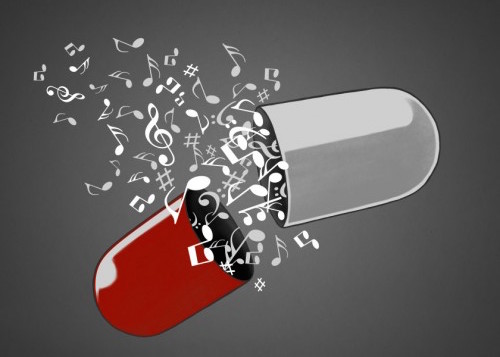You’ve probably self-medicated with music before–most of us do it frequently! You listened to an upbeat song to motivate you for cardio exercise, you were soothed by a melancholy album during a rough patch, or maybe you put on something slow and relaxing while you were trying to fall asleep. You maybe thought about the power of music and its incredible ability to manipulate your mood.
I would also guess that you’ve probably heard stories about people in the late stages of Alzheimer’s or dementia appearing to be brought to life again by a nurse or family member playing a familiar song. Many saw these stories played out in the 2014 movie Alive Inside.
These experiences are undoubtedly miraculous and are wonderful demonstrations of music being harnessed for good. Music is certainly having a therapeutic effect for all involved. However, it’s not clinical music therapy, and the distinction is important.
Music therapy is practiced by credentialed professionals who have completed all the criteria for Board Certification, as governed by the Certification Board for Music Therapists. It is practiced by credentialed professionals because music, when used incorrectly, can be harmful. The American Music Therapy Association gave an example in a press release about Alive Inside:
The use of personalized music programs delivered by iPods with headphones facilitated by nursing home personnel is not clinical music therapy. The public should be aware that in some cases the iPod can cause more stress and harm to elderly persons, especially those in late stage dementia. No negative memories of clients, which might have resulted from the music listening, were portrayed in the film. A music therapist is trained to deal with painful issues that arise when difficult memories return. Board certified music therapists also have the ability to adjust or adapt the music provided when unpleasant feelings or sensations from the volume, rate of speed, or intensity in the music occurs. The fact of the matter is that almost anything a board certified music therapist would do using clinical music therapy techniques would potentially have an even more profound effect than passively listening to music. Techniques used by a board certified music therapist, following an assessment process, such as singing with a client, playing a musical instrument with a client, involving the family in the process, can all have profound and important effects.
Music’s accessibility can be misleading. It is very easy to play music on a speaker and feel that you are creating a positive environment. However, you need only think about terrible music at a party, music that is too loud, or a sound that you find particularly irritating to know that music is not a cure-all.
A music therapist once told a story about a patient who was comatose. His mother had bought a CD of “relaxing” music the play for him–classical music with slow, soothing violins and cellos. When a music therapist was brought in, she saw that his reaction to this CD displayed all the signs of increased stress (higher breathing and heart rate, clenching fists, scrunching up his face). When she asked the mother what the boy’s music preference was, she shyly admitted that he listens to gangster rap–but because she does not find this music soothing, she assumed her son wouldn’t either. The music therapist is trained to know that you always start with a patient’s musical preferences, no matter how counter-intuitive they may seem. Sure enough, the boy immediately relaxed when his preferred music was played.
These are just a few examples of why playing music on an iPod is not clinical music therapy. A music therapist may choose to play recorded music, but the therapist will have research- and client-based reasons for that choice. As the profession of music therapy continues to grow, it is important to “advance public awareness of the benefits of music therapy and increase access to quality music therapy services in a rapidly changing world” (AMTA Mission Statement). So please, by all means, continue to use music therapeutically in your daily lives! But just like you wouldn’t call yourself a doctor because you use ibuprofen, do not mistake all therapeutic uses of music as clinical music therapy.

